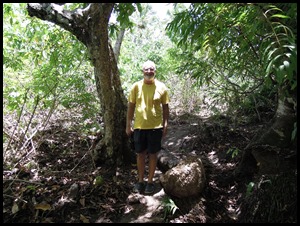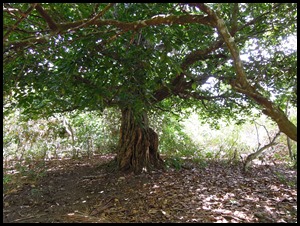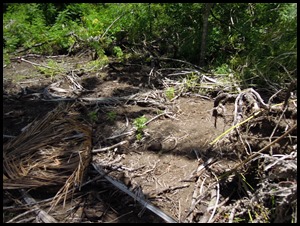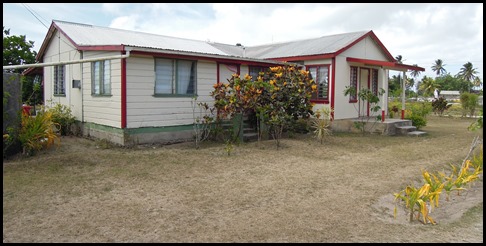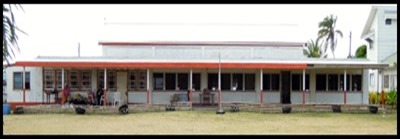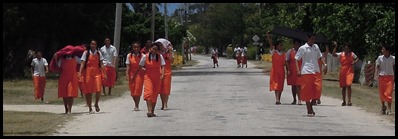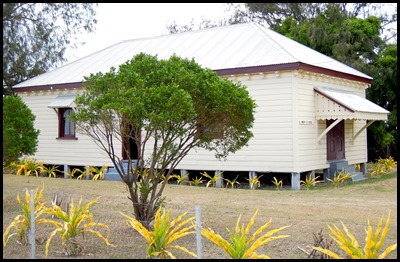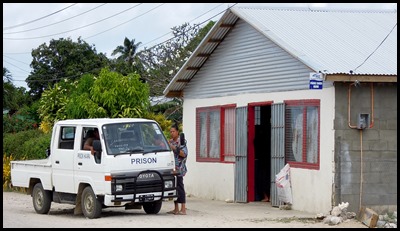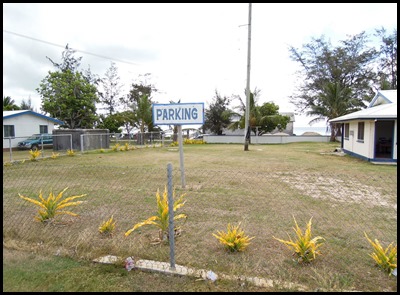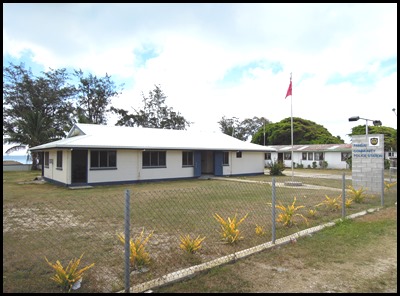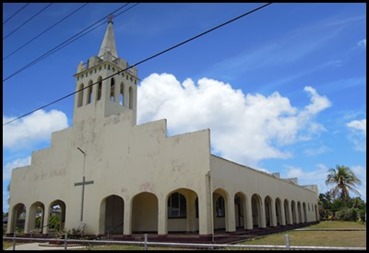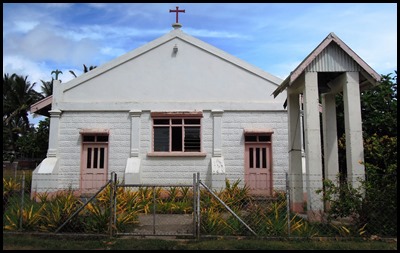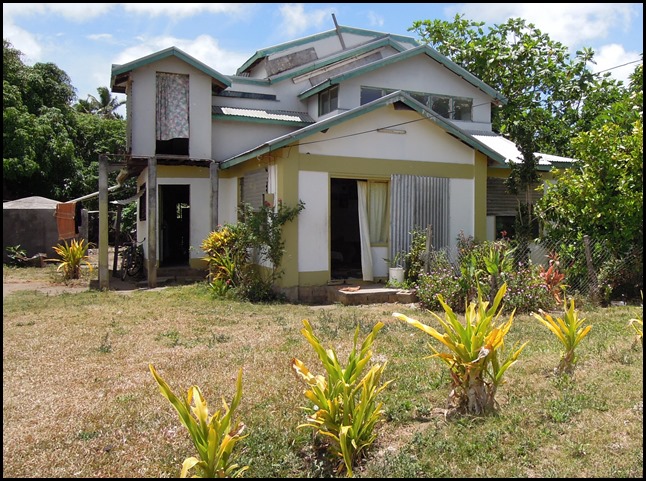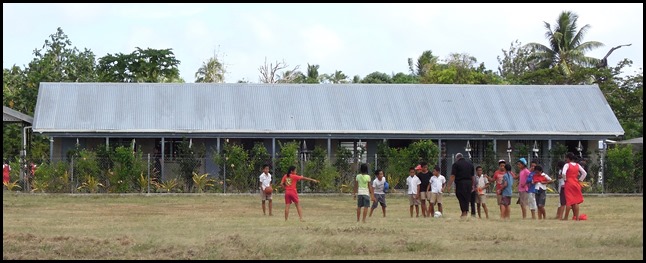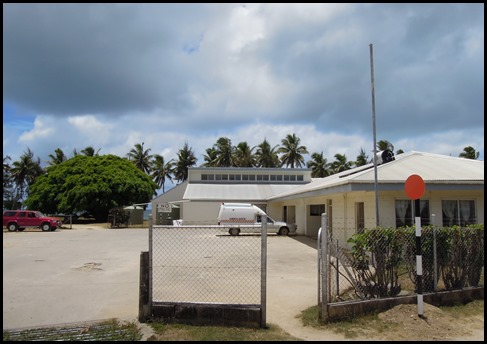Lifuka by Bike

|
Exploring Pangai and South
Lifuka
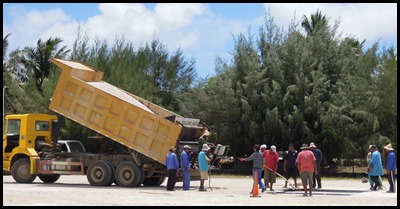
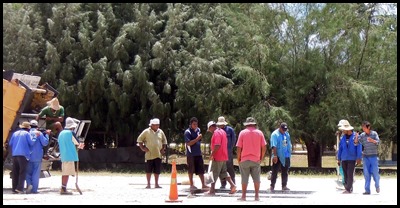 We went ashore for our day of
exploring. We think this is what is called ‘many hands make like work’ or thirteen people to fill a small hole.
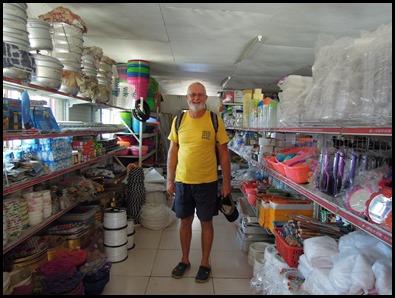 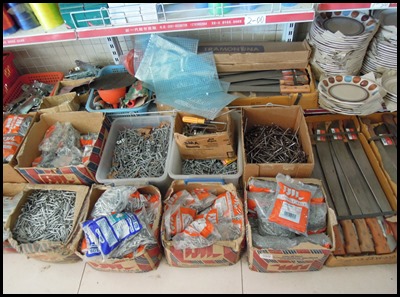 We had a
look around one of several Chinese emporium‘s and found the owner spoke no English,
but he could flip between Mandarin and Tongan in a flash. We have found less
people on the island speak English and the youngsters begin at school around the
age of seven or eight, but everyone welcomes us with a big smile and a friendly
“hello”.
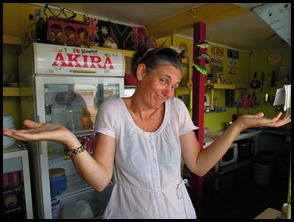
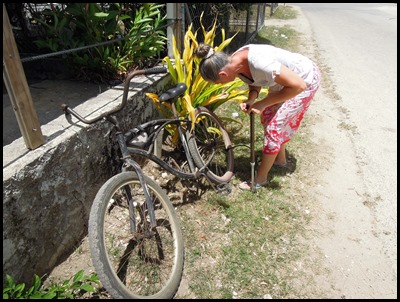 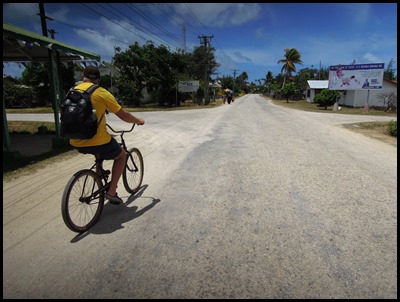 Important
stop was to collect bikes from Mariner’s Café (named after William Mariner). We
had read the freebie tourist book and were excited about all the things to see
on this tiny island and discussed the list with the lovely proprietor – Magda. I got her to take this
classic pose after she made us laugh. “You’ll be back in ten minutes, there’s
nothing here to see.” Oh. Undeterred we said we would have a go and maybe be
back in an hour.....which actually turned into four...... A
quick pump and off we went down the main
road.
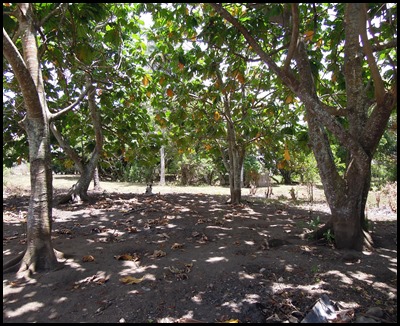 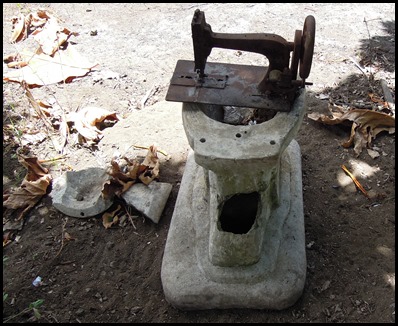 We found a gap in the
fence at the first place on our list. Standing in the shade
of many trees, we were looking for the ‘Ahau Bathing Well. We walked by a
classic – a ‘one carefully owned’ sewing machine atop a
concrete privvy.
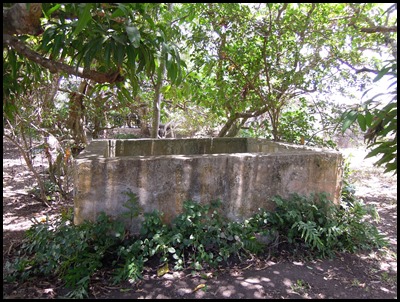 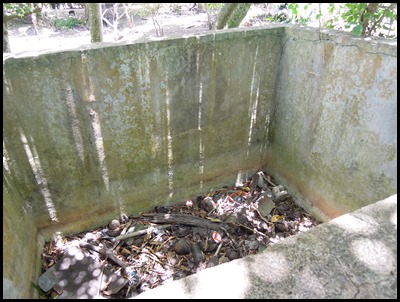 Magda’s words were now
ringing in our ears. Maybe once long ago the well heeled
bathed here, clearly no longer. Oh
well said the optimist, the fort is just up the
road. I’m sure that will put us
right........
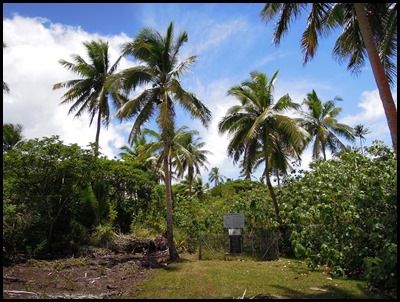 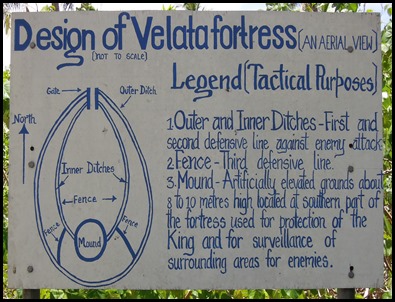 I felt a deep
underwhelming feeling as we parked the bikes and walked toward the sign.
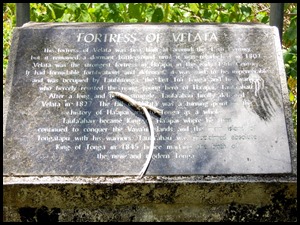 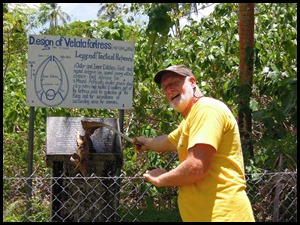
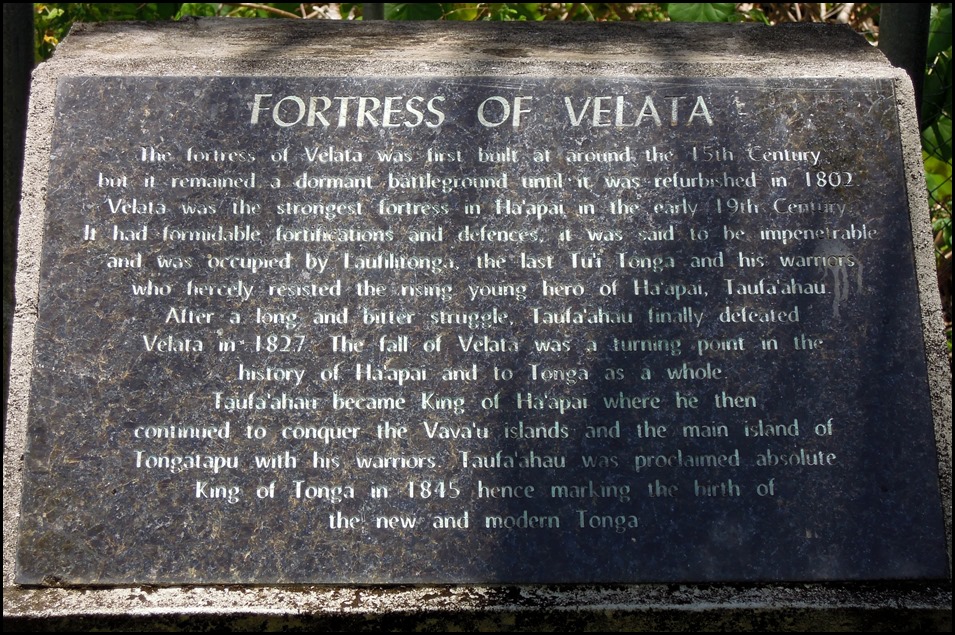 Below the hand painted
sign was a proper memorial, with twig. Bear immediately threw himself to the
task of sweeping off the offending item, as our blog
readers demand the best. It read:- The fortress of Velata was first
built at around the 15th Century, but it remained a dormant battleground until
it was refurbished in 1802. Velata was the strongest fortress in Ha’apai in the
early 19th Century. It had formidable fortifications and defences, it was said
to have been impenetrable and was occupied by Tauhilitonga, the last Tu’i Tonga
and his warriors who fiercely resisted the rising young hero of Ha’apai,
Taufa’ahau. After a long and bitter struggle, Taufa’ahau finally defeated Velata
in 1827. The fall of Velata was a turning point in the history of Ha’apai and to
Tonga as a whole. Taufa’ahau became King of Ha’apai where he then
continued to conquer the Vava’u islands and the main island of Tongatapu with
his warriors. Taufa’ahau was proclaimed absolute King of Tonga in 1845 hence
marking the birth of the new and modern Tonga.
Undeterred we went in search of more. All we found was a tree and a scruffy bit....and there I was hoping for a cannon or two....... The book said:- The Velata is an example of a ring ditch fortification, a type of defensive work that is widespread throughout Fiji, Samoa and Tonga. A enclosing moat-like ditch was excavated first, and the removed earth piled on the inside. This bank served as a platform for the construction of a ten foot high palisade wall. According to historical accounts, the fort was built in the 15th century. In the first half of the 1820’s, it was refurbished and occupied by Laufilitonga, a man who later became the 39th and last Tu’i Tonga (an ancient sacred line of Tongan kings). Laufilitonga was defeated in battle by the chief Taufa’ahau in September 1826, and the Velata was burned. A couple of ridges from the original fort can still be seen..................
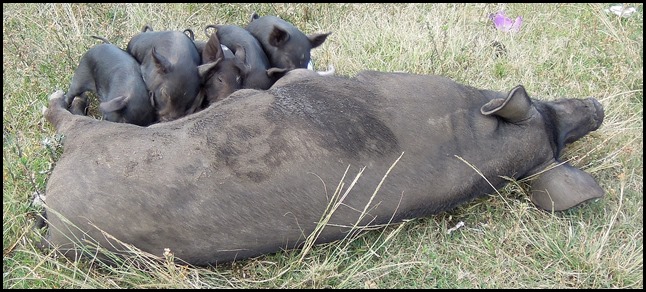 The smartest house we saw all day. This is a common sight. It is a well known fact that the well-being of your pigs holds higher value than your house.
Tailulu College and very smart uniform.
The splendid Law Court - Department of Justice. The Ha’apai Prison van stopping for some lunch.
The Police Station with its well maintained car park.
Two churches, we found many small chapels too.
Speed – On these roads.....
One of the local priests teaching football.
The hospital. 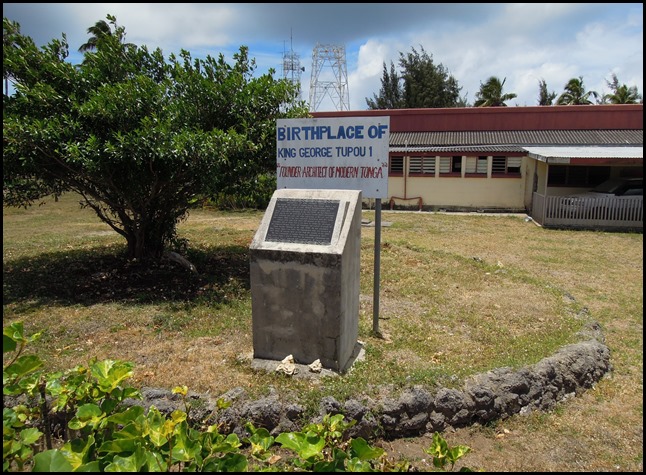 The plaque reads:- Birthplace of King George Tupou I. The founder and architect of modern Tonga, King George Tupou I was
born on this very spot in 1797. Named Ngmingmiofelonga at birth, he was
christened Taufa’ahau when he became a young man. Being converted to
Christianity in the late 1820’s, he was baptised in 1831 and he felt the need
that all Tongans should abolish worshipping their false gods and adopt
Christianity as the one and only true religion. While a few were converted,
Taufa’ahau’s wish met strong defiance from some high chiefs and majority of the
natives. Taufa’ahau had no
choice but to use force to subdue his adversaries. He conquered Ha’apai, Vava’u
and Tongatapu and ordered all people of Tonga become Christians in the early
1840’s. He was proclaimed King George Tupou I in 1845. The Emancipation Edict
was declared in 1862 where all Tongans were set free from the tyranny of the
chiefs. The first Constitution of modern Tonga was announced in 1875. King
George Tupou I died in 1893 but his remarkable achievements left behind a legacy
that is embraced and remembered by all Tongans forever.
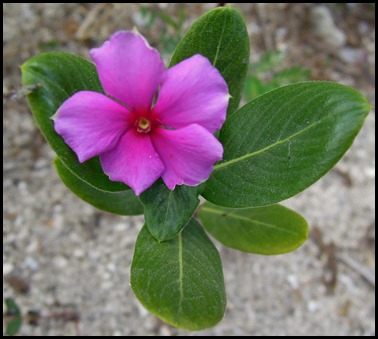 Time for us to
hit the sandy road to find Hulu’i Paongo’s tomb at the same named Point on the
southernmost tip of the island.
ALL IN ALL EVERYTHING YOU
NEED IN MINIATURE
A NON-TOURIST ISLAND GOING ABOUT ITS
BUSINESS
|
